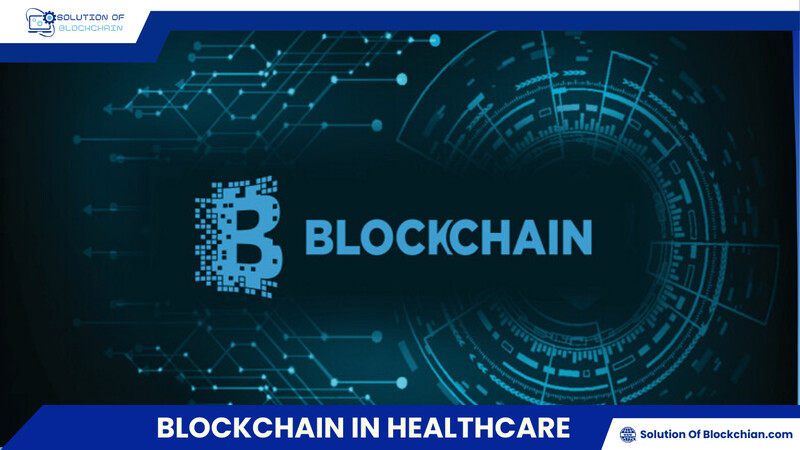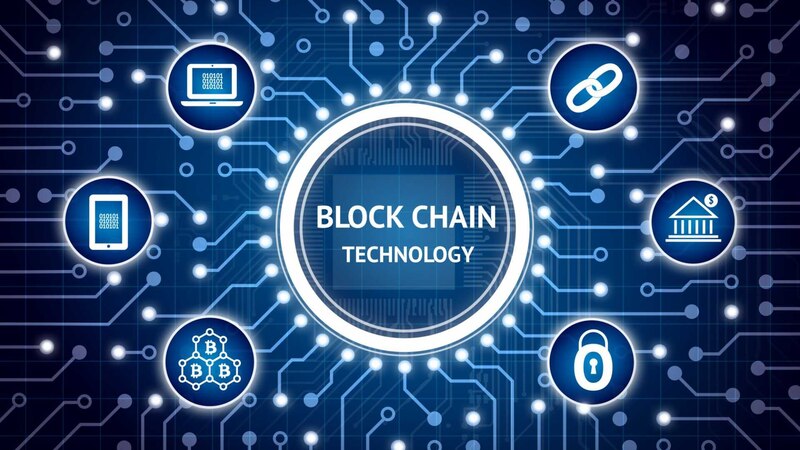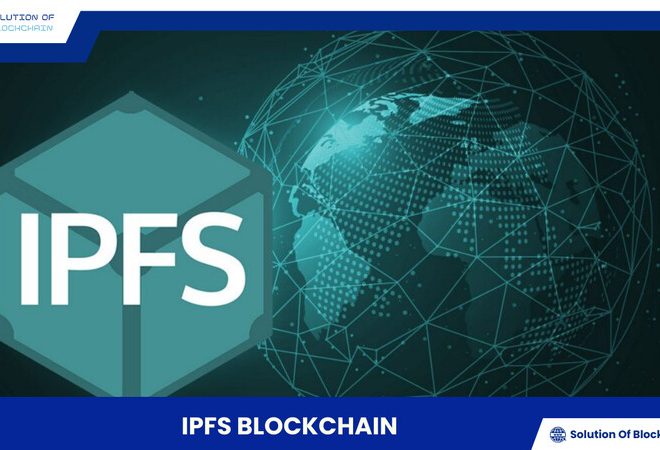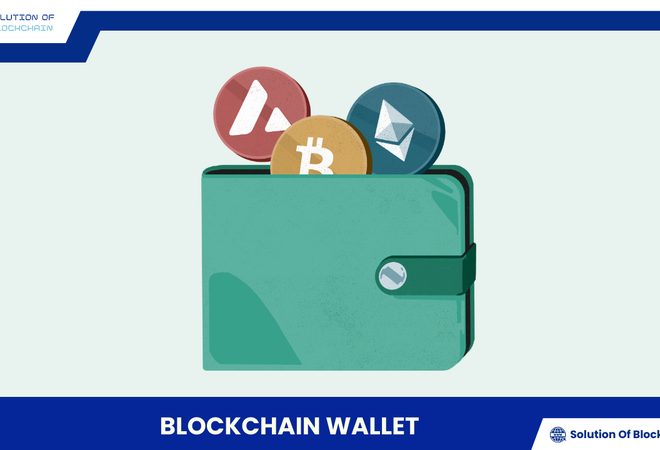
Blockchain in healthcare: The Healthcare revolution
Blockchain technology is revolutionizing the healthcare industry with its superior security, transparency, and efficiency. Discover the groundbreaking applications of blockchain in healthcare, from managing medical records and tracking pharmaceuticals to revolutionizing health insurance and beyond!
What is Blockchain?
Blockchain, also known as “distributed ledger technology” (DLT), enables secure, transparent, and immutable recording and verification of information. Imagine a digital ledger shared across multiple computers where every transaction is permanently recorded and verifiable by anyone on the network.
Core operational mechanisms of Blockchain:
- Data grouped into “blocks”: Each block contains a set of transactions.
- Blocks linked into a “chain”: Each new block added to the chain contains the hash of the previous block, forming a continuous and unbreakable chain.
- Immutability: Once a block is added to the chain, the information within it cannot be altered or deleted, ensuring data integrity.
- Decentralization: Data is replicated and stored on multiple computers in the network, preventing the concentration of power and enhancing resilience against attacks.
Key advantages of Blockchain in healthcare:
- Absolute security: Sensitive medical data is encrypted and protected by modern cryptographic algorithms, preventing unauthorized access and ensuring patient privacy.
- Maximum transparency: All transactions and data changes are recorded on a public ledger, allowing for transparent audits and monitoring.
- Superior efficiency: Blockchain automates processes, eliminates intermediaries, reduces waiting times, saves costs, and improves operational efficiency.
- Seamless connectivity: Blockchain creates a trusted platform to connect stakeholders in the healthcare ecosystem, from hospitals and clinics to doctors, patients, and insurance companies.
Groundbreaking applications of Blockchain in healthcare
Electronic Health Record (EHR) management
Electronic Health Records (EHRs) are the foundation of modern healthcare, storing vital information about a patient’s medical history, diagnoses, treatments, and overall health. However, traditional EHR systems often face challenges with data fragmentation, lack of security, and difficulties in accessing and sharing information.
Blockchain offers an optimal solution for EHR management:
- Secure and centralized storage: EHRs are encrypted and stored on the blockchain, ensuring security, integrity, and easy accessibility from multiple locations.
- Flexible access control: Patients have full control over their data and can authorize access to doctors, hospitals, or other stakeholders in a secure and transparent manner.
- Efficient data sharing: Blockchain enables the rapid, secure, and efficient exchange of medical information between parties, promoting collaboration and continuous healthcare.
Real-world examples:
- Medicalchain: A blockchain platform that allows patients to create, manage, and share their personal health records with healthcare providers.
- BurstIQ: A blockchain-based health data ecosystem that connects stakeholders and provides comprehensive health data management solutions.
Benefits:
- Reduces medical errors due to missing or inaccurate information.
- Improves the quality of healthcare by providing doctors with a holistic view of a patient’s medical history.
- Empowers patients to actively participate in their healthcare.
Pharmaceutical traceability
Counterfeit and substandard drugs are a serious threat to public health. Blockchain can help build a transparent and reliable pharmaceutical traceability system, from manufacturing to the end consumer.
- End-to-end supply chain tracking: Each stage in the supply chain, from production and packaging to transportation and distribution, is recorded on the blockchain, creating a transparent and immutable history.
- Product authentication: Consumers can scan QR codes or use blockchain applications to verify the origin, ingredients, and expiration dates of medications, ensuring they are purchasing genuine products.
Real-world example:
- MediLedger: A blockchain platform focused on enhancing pharmaceutical supply chain security, allowing parties to share data securely and efficiently.
Benefits:
- Prevents counterfeit drugs, protecting public health.
- Increases consumer confidence in the pharmaceutical industry.
- Improves the efficiency of supply chain management and oversight.
Protecting genomic research Data
Genomic data is a treasure trove for modern medicine, containing crucial information about human genetic makeup, helping scientists better understand diseases, and develop effective diagnostic and treatment methods. However, collecting, storing, and sharing genomic data raises challenges related to security, privacy, and ethics.
Blockchain provides a secure and transparent solution for managing genomic data:
- Encryption and access control: Genomic data is encrypted and securely stored on the blockchain, allowing patients to control access and share their information with researchers or healthcare organizations.
- Promotes medical research: Blockchain facilitates the secure and efficient sharing of genomic data among scientists, driving medical research and the development of personalized treatments.
Real-world examples:
- Nebula Genomics: A blockchain platform that allows users to sequence their genomes, store data securely, and earn money by sharing data with researchers.
- EncrypGen: A blockchain project that creates a genomic data marketplace where users can sell their genomic data to researchers securely and transparently.
Benefits:
- Protects the privacy and ownership of patients’ genomic data.
- Promotes medical research, the development of new treatments, and personalized medicine.
Health insurance
The health insurance industry faces challenges such as fraud, complex and costly claims processing, and a lack of transparency. Blockchain can help address these issues:
- Process automation: Blockchain automates insurance claim processes, minimizing manual intervention, saving time and costs.
- Fraud reduction: Blockchain helps verify patient information, medical services, and insurance claims accurately, preventing fraud and abuse.
- Process transparency: All transactions and information related to insurance are recorded on the blockchain, creating a transparent and auditable system.
Real-world example:
- Aetna: One of the largest health insurance companies in the US, is using blockchain to improve claims processing and reduce costs.
Benefits:
- Reduces management and operating costs for insurance companies.
- Accelerates claims processing, providing convenience to customers.
- Enhances transparency and accountability in the health insurance industry.
- Increases trust between policyholders, healthcare providers, and insurance companies.
Other potential applications
Blockchain in healthcare, in addition to the outstanding applications above, also has the potential for wide application in many other areas of healthcare:
- Medical supply chain management: Tracking medical devices and consumables, ensuring quality and origin, and preventing counterfeit goods.
- Disease surveillance and emergency response: Rapid, transparent, and secure collection and sharing of epidemiological data to support effective disease prevention and control.
- Clinical trials: Managing clinical trial data, ensuring integrity, accuracy, and transparency, and enhancing the reliability of research results.
- Telemedicine: Authenticating the identity of patients and doctors, securing information exchange during remote consultations, and facilitating access to healthcare services.
- Preventive medicine: Encouraging healthy lifestyles and proactive healthcare through blockchain applications combined with wearable devices and smart contracts.
Comprehensive benefits of Blockchain in healthcare
The application of blockchain in healthcare brings significant benefits to all stakeholders:
- For patients: Control over personal data, access to high-quality healthcare services, transparent costs, and increased trust in the healthcare system.
- For healthcare providers: Improved operational efficiency, reduced operating costs, secure information exchange, and effective collaboration with stakeholders.
- For regulatory agencies: Strict monitoring, transparent data, improved quality of healthcare services, and effective disease prevention and control.
- For investors: Opens up investment opportunities in innovative healthcare solutions, promoting the development of the healthcare industry.
Challenges and prospects
Despite its enormous potential, the application of blockchain in healthcare still faces some challenges:
- Scalability: The scalability of blockchain needs to be improved to handle the large volume of data and transactions in the healthcare industry.
- Implementation costs: The initial investment cost for implementing blockchain systems can be high, especially for small healthcare facilities.
- Legal framework: A clear legal framework is needed to regulate the use of blockchain in healthcare, protect the interests of stakeholders, and ensure compliance with medical data regulations.
- System integration: Integrating blockchain with existing healthcare IT systems can be challenging technically and operationally.
However, the outlook for blockchain in healthcare is very optimistic:
- Technological development: New blockchain solutions are being developed to address scalability, cost, and performance issues.
- Interest and investment: Governments, healthcare organizations, and technology companies are investing heavily in research and application of blockchain in healthcare.
- Community awareness: Public awareness of the benefits of blockchain is increasing, creating momentum for the widespread adoption of this technology.
Blockchain is a revolutionary technology that promises to transform the healthcare industry in the near future. Its application will help build a secure, transparent, efficient, and patient-centric healthcare system. Although there are challenges to overcome, with the efforts of the community and the continuous development of technology, blockchain will usher in a new era for healthcare, bringing practical benefits to everyone.
To explore more about Blockchain in healthcare and its applications in other fields, don’t forget to continue following Solution Of Blockchain!






